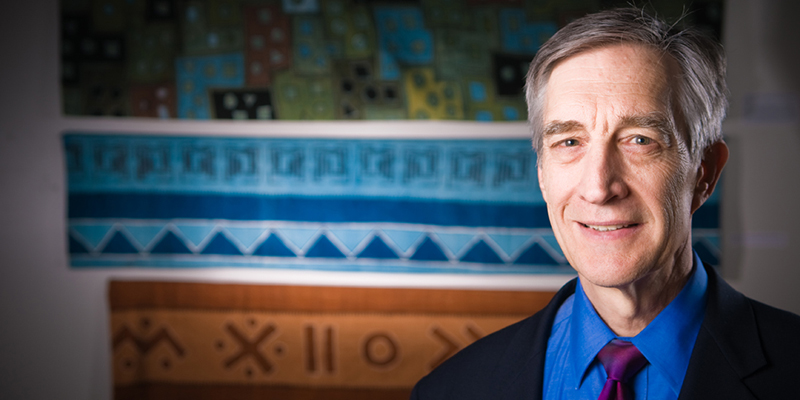Message from the Dean: Our Projects of Mutual Independence
August 28, 2018
By Stephen Esquith, Dean of the Residential College in the Arts and Humanities
 In RCAH we do projects. Many of our classes end with a final project, not a final exam. Probably all of our courses include one kind of group project or another. We work in groups, whether they are ensembles, teams, workshops, or partnerships. Projects are more than co-authored or co-edited papers. They are more than committee reports. The process is at least as important as the product.
In RCAH we do projects. Many of our classes end with a final project, not a final exam. Probably all of our courses include one kind of group project or another. We work in groups, whether they are ensembles, teams, workshops, or partnerships. Projects are more than co-authored or co-edited papers. They are more than committee reports. The process is at least as important as the product.
Because in RCAH we do projects together, you might even say that RCAH itself is a project – a collaborative process of mutual independence.
I realize that sounds pretty strange, even self-contradictory. How can you be both independent and involved in a collaborative process that requires you to work together toward some kind of mutually agreed upon goal? Mutual independence, in fact, is what RCAH projects and the “RCAH Project” are all about. Finding your own passion, charting your own course, and doing it with others so that you discover your mutual interests and common needs.
Students working together on group projects in their courses have to find this sweet spot where collaboration encompasses independence and independence includes mutuality. Our faculty have had the same challenge, for example, building a new college together and now working together to revise the RCAH curriculum. Each of these collaborative projects reflects their own sense of who we are as a college and what faculty need as individual teachers and scholars.
Let me take this to a slightly more abstract level.
This concept of mutual independence is not original with RCAH. Philosophers such as G.W.F. Hegel and T.H. Green centuries ago proposed it as an alternative to the sharp distinction between the ideal of the self-reliant individual (on the one hand) and a well-ordered society (on the other). For Hegel and Green, self and society were not polar opposites but rather intricately intertwined. We become who we are in relationships to others and in the process of building the institutions that make those relationships possible.
The same ideal is embodied in the southern African notion of ubuntu associated with the theology of the South African leader Desmond Tutu. According to cultural and social change historian Michael Onyebuchi Eze, the core of ubuntu can best be summarized as follows:
… humanity is not embedded in my person solely as an individual; my humanity is co-substantively bestowed upon the other and me. Humanity is a quality we owe to each other. We create each other and need to sustain this otherness creation. And if we belong to each other, we participate in our creations: we are because you are, and since you are, definitely I am. The "I am" is not a rigid subject, but a dynamic self-constitution dependent on this otherness creation of relation and distance.
So, when it comes time to figure out how your team will do its project, whether it is a course assignment, revising the RCAH curriculum, organizing a teach-in, or contributing to a new Strategic Arts Plan for the University, remember that projects like these do not have to force us to choose between our own individual interests and needs, those of others, and some distant institutional priority. As projects of mutual independence, they have the potential to help us articulate and even celebrate a collaborative approach.
RCAH has been and should continue to be a model for this way of working together, perhaps now more than ever when public education is being steered toward narrow individual self-interest and away from ideals like mutual interests and common needs.

